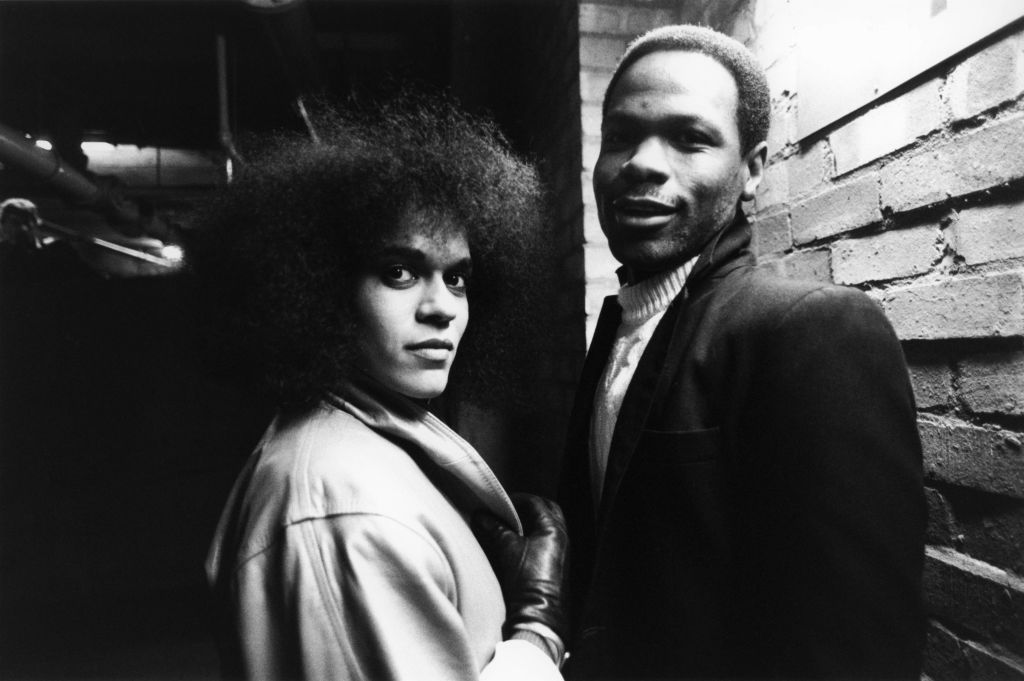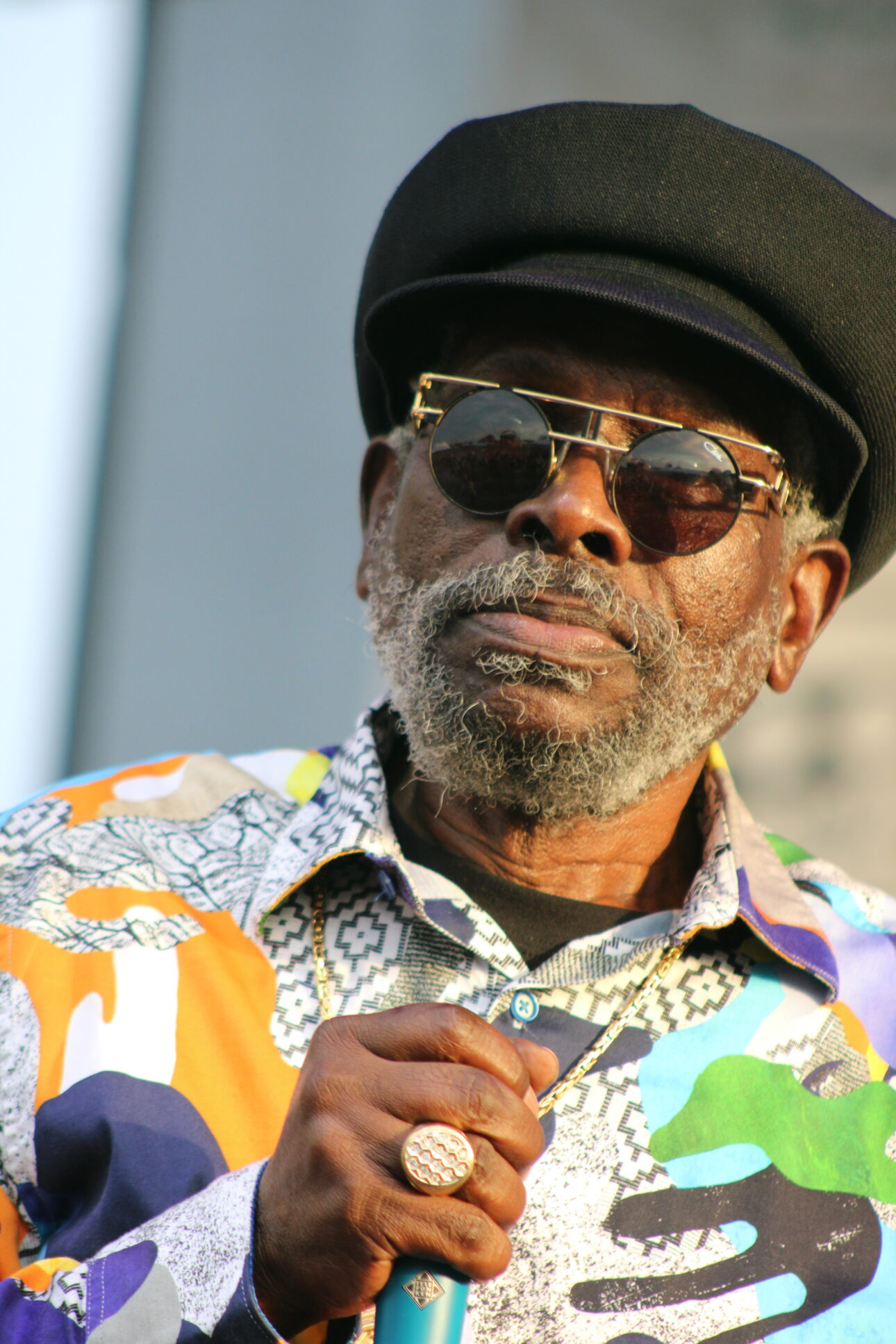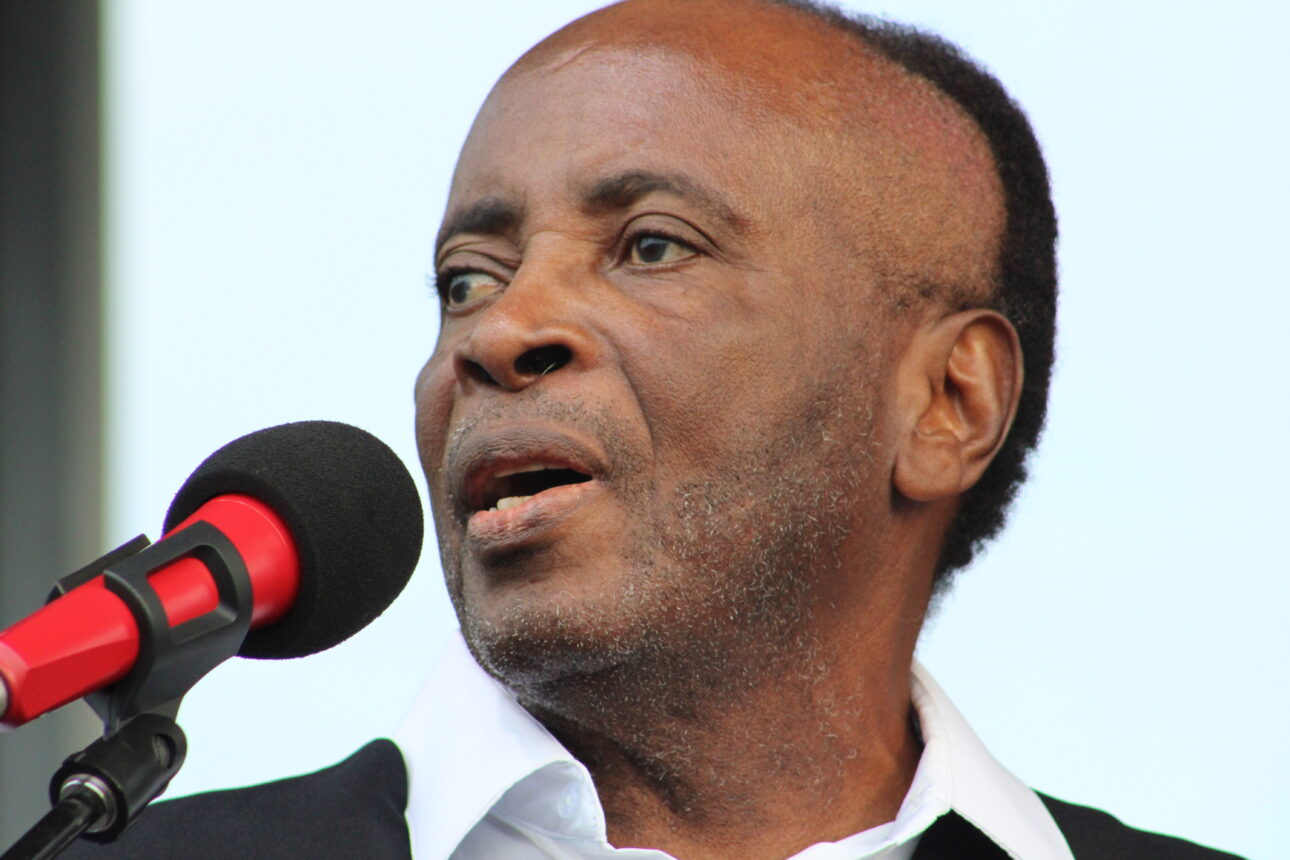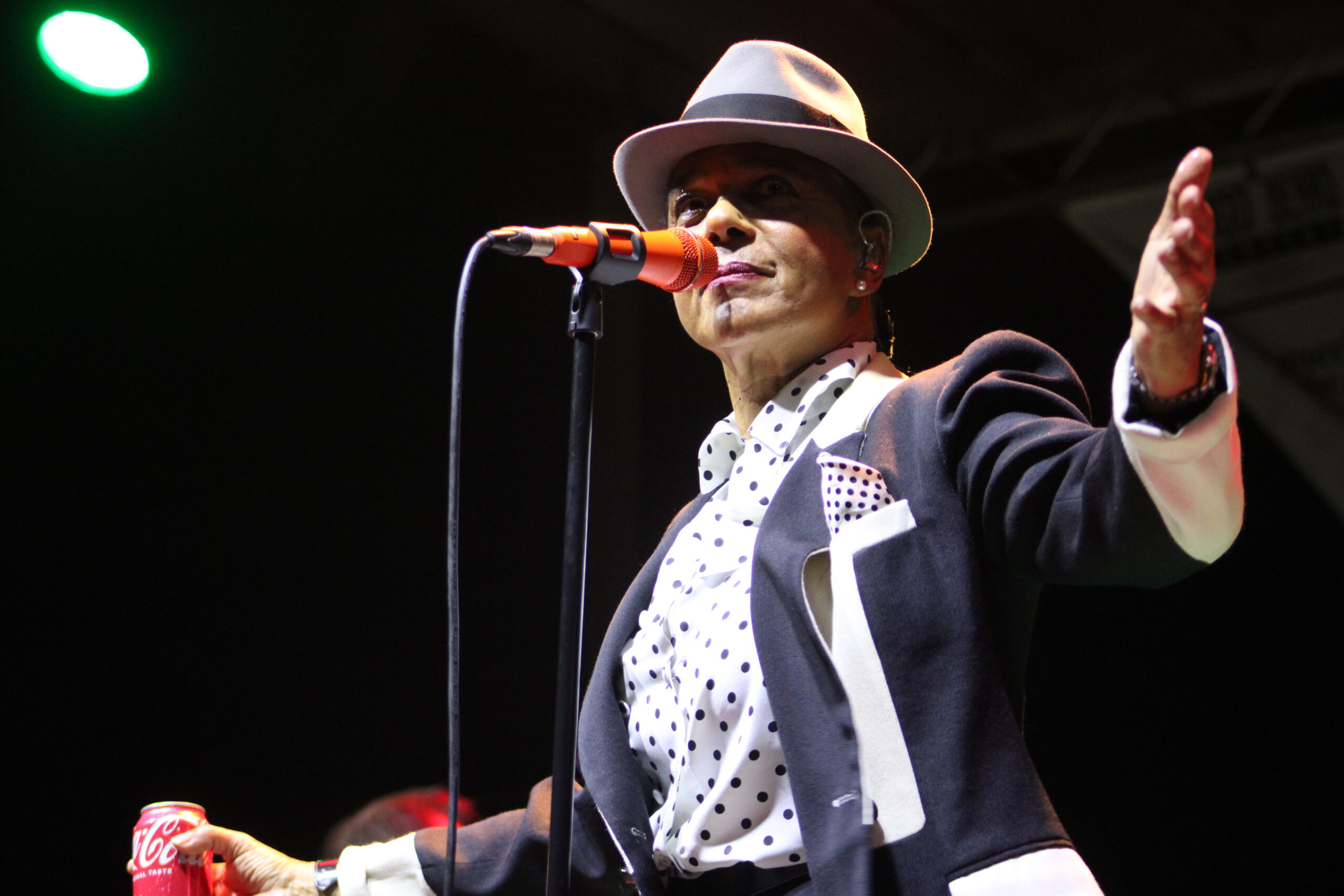It might sound like the plot of a movie. You know the one: teenagers throw a rager house party that explodes wildly to become a thing of legend? Yeah, well that’s kind of how the Supernova International Ska Festival began ten years ago. Party-throwers-now-turned-festival-organizers Tim and April Receveur explain that what started as a small show in their backyard is now a three-day festival featuring 35 bands from all over the world at Fort Monroe in Virginia. Headlining at Supernova, which took place mid-September, was legendary ska band the Selecter.
“Selecter was on the bucket list from 10 years ago,” says Tim Receveur, though a decade ago he says he never could have imagined he would fulfill that dream. “We had a backyard party with Chris Murray that got out of hand. We had too many people coming to our house and so we moved to a brewery at an abandoned railroad yard and it was a perfect place to have a collection of misfits.”
Ska may very well draw a “collection of misfits,” though the atmosphere is more akin to a family reunion. That family warmly welcomed Pauline Black of the Selecter, especially since her life-long friend and fellow founding member of the band, Arthur ‘Gaps’ Hendrickson, died this past June. Black dedicated a song to his memory, the James Bond theme song, though she refrained from speaking about Hendrickson further. Instead, Black shared a political messages.
“At the risk of telling you what to do, you must save us,” said Black on stage to applause from thousands. “Save us in Britain. Remember that special relationship between our countries. We are sick to death of seeing that,” and she paused before conjuring up, “orange person on our televisions. I don’t care who you vote for really, just don’t vote for him! Remember when you go in that voting booth, do have your brain engaged because I tell you, the right wing are on the move in Europe, and they are on the move here. And as a Black female person, I’m fucking scared! So I challenge you now — stand upon the front line this November,” she concluded before launching into their 2017 song, “Frontline.”


Ska has been political since its origins. The very existence of ska is political. It is music of the people in Kingston, Jamaica, during a time of independence, freedom from the colonizer, the oppressor, and a declaration of the country’s own identity. Song lyrics could be political, sure, but even those without lyrics in this largely-instrumental form made political statements through the songs’ titles, as well as tone and aural dialogue.
That political purpose continued even more overtly in UK’s ska revival known as 2 Tone, so named for the record label that represented most of the bands during this period of the late 1970s and early 1980s. Bands like the Specials, Madness, the Beat, the Bodysnatchers, and Supernova headliner the Selecter, were signed to 2 Tone at one point and all used the platform and movement to espouse political views on race and unity, as well as condemn policies of Margaret Thatcher that they saw as harmful and as fuelling right-wing extremists.
Politics and social concerns imbue ska music with relevance and Tim Receveur says this appeals to his mission in presenting ska fans with acts like the Selecter — acts they travel hundreds of miles, sometimes thousands, to experience. “The Selecter has not played on the east coast in five or six years,” says Receveur, “and what they represent with 2 Tone and that era, having a lead singer that strong — Black and white is one thing, but a woman is important. This is their only show in North America outside of California this year and it really could be the last stop in the U.S. if you’re reading the tea leaves, especially with Gaps.”


Music with a purpose motivates the Receveurs to include bands that align with ska’s underlying politics of inclusion, unity, and identity. It also motivates them to collaborate with organizations that bring music and the arts into the lives of young people. This year they launched their own not-for-profit, the Supernova Alliance. “We wanted to […] to give back to the ska community, so we started the Supernova Alliance with people in the music community and education community, to give funding to places like the Alpha Institute in Kingston, Jamaica, and local schools in Hampton, Virginia, for scholarships for students pursuing music. We chose Alpha because it is one of the birthplaces of ska music and so many ska musicians come from there. We want to give back to the Jamaican community that started it all,” says Receveur. To date, Supernova efforts have raised over $30,000 for the Alpha Institute, home of numerous globally-renowned musicians.
That connection to ska’s heritage is important for the Receveurs who bring ska from all over the world, from all eras, to Supernova. This year’s lineup also included performances from Laura Jane Grace and Catbite performing the songs of Operation Ivy, the Prize Fighters, the Steady 45, Skavoovie and the Epitones, Hey Smith!, The Aggrolites, Rude Girl Revue, Inspector, the Slackers, Doped Up Dollies, the Pietasters, Big D and the Kids Table, Mephiskapheles, and dozens more including the one who started all the backyard trouble, Chris Murray.


Having one foot in new music and one in the past is important for the Receveurs in assembling the lineup. “Ska starts in Jamaica, so we want to have artists like Stranger Cole, Sister Nancy, and Derrick Morgan, like we have over the years,” says Receveur. This year, Jamaican artists Johnny Osbourne, Roy Ellis, and the Pioneers performed, the latter of which was meaningful for Pauline Black.
“You were the one who turned me on to reggae,” Black told the Pioneers’ Jackie Robinson after meeting him for the first time at Supernova. “When I was 15 years old, I heard ‘Longshot Kick De Bucket,’ and I never looked back after that.” Black and her band covered the Pioneers’ tune “Time Hard,” retitling it “Everyday.” Both groups performed the song for Supernova fans. As Pauline Black closed out the Selecters’ set and the festival in the big backyard of Fort Monroe, Virginia, she thanked her fans, but also thanked the organizers. “It’s been an absolute honor to come here and play for you all. And I thank Tim and I thank April because I know it’s hard to organize things these days and do ska festivals and get the quality of acts that they are able to get. And I also know that this is their 10th anniversary. These are dedicated people. And if you don’t have dedicated people serving this kind of music, then it would die when we die, and all those who come after us.”

